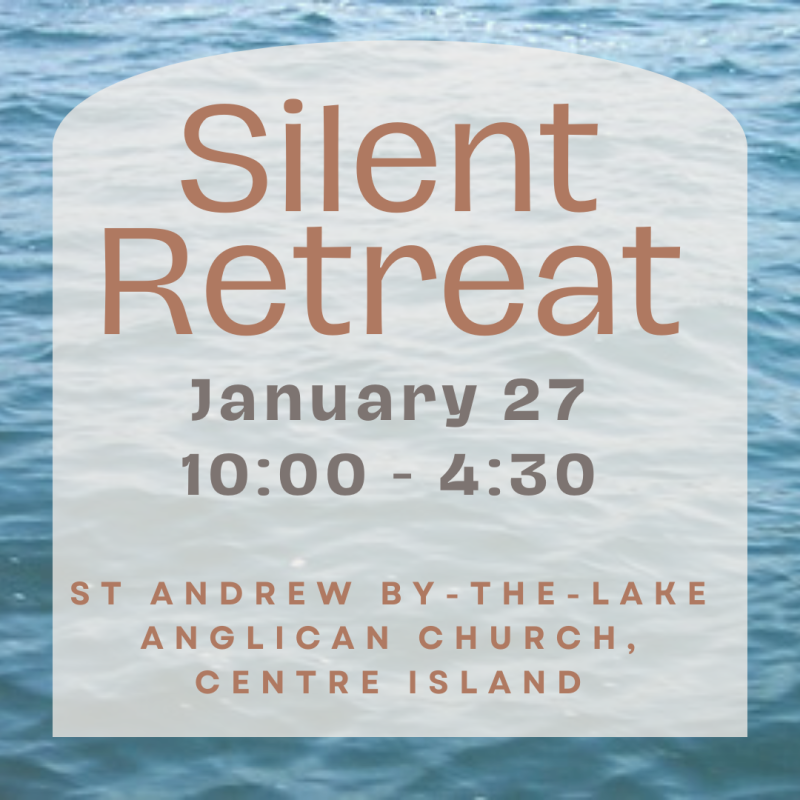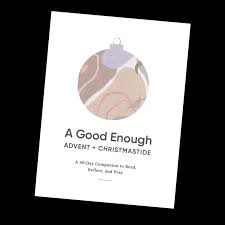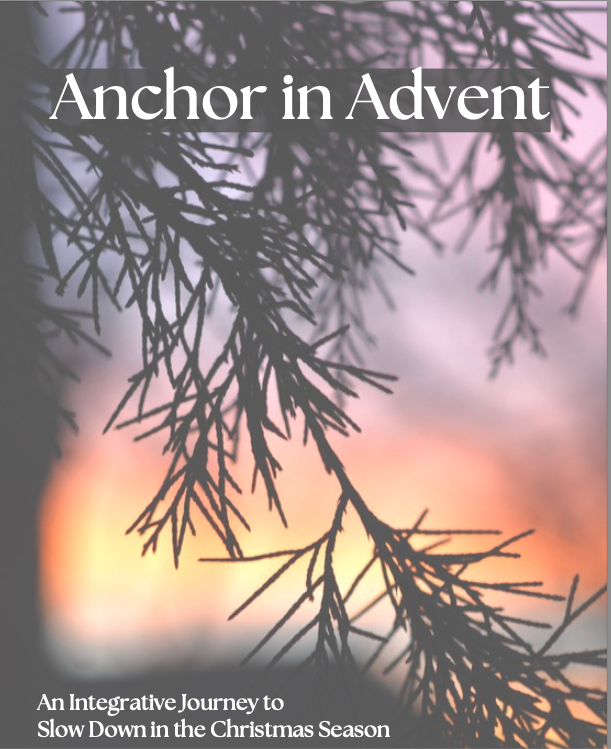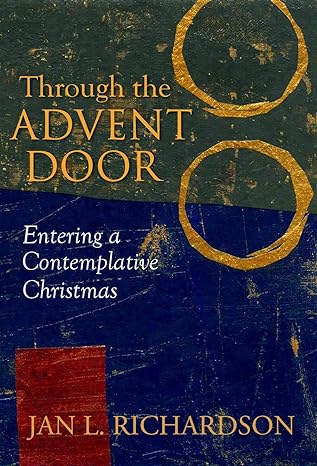The following sermon was preached at Willowdale Christian Reformed Church and (Scarborough) Grace Christian Reformed Church in fall 2023.
Text: Jeremiah 29:1-14
One of the things I do as a campus minister is to help people understand God and the Bible better. Sometimes this means I study the Bible with a group of people, and we wonder together how what we are leaning applies to our lives. Sometimes this happens in one-on-one conversations that are filled with curiosity and challenging questions. And sometimes my job involves challenging people’s misunderstandings about God and how God works.
And this is hard, because who is able or willing to admit they might be wrong without the Holy Spirit’s help? Our understanding of God, as well as the Bible, is closely connected to how we live and what we believe we can and should do. And we don’t want to change! There are reasons we believe the way we do: it makes us feel better, it confirms how we see the world and how God works, or it’s what we’ve been taught or always known. On top of that, most of the misunderstandings around God are the kind that are only partly wrong. If they were all wrong, we would know better: beliefs that are mostly true are harder to recognize.
Misunderstandings about God are not simply an intellectual problem. Wrong beliefs can lead to harm to oneself or others.
Problem in world – despair (from wrong understanding of God)
Jeremiah 29, especially when certain verses are taken out of context, can easily lead to misunderstandings about God and how God works.
Jeremiah 29:11 says, “For I know the plans I have for you,” declares the Lord, “plans to prosper you and not to harm you, plans to give you hope and a future.”
You might recognize these words, even if you didn’t know that they’re from the book of Jeremiah. These words are often written on cards or on posters that Christians might have or give away.
They are especially common on things given to people graduating from high school or university, which are seasons when people are entering into the unknown. The future is uncertain, and it is comforting to remember that God is with us in this season.
But too easily these words can feel like a promise of a future without suffering. Too easily we can read that God’s plans to make us prosper are about being successful, or about getting what we want for our future and for now.
The idea that I ought to be happy as a Christian is an idea that many people hold. And it’s a belief that has some truth in it. After all, the Bible talks about learning to be content in all circumstances. Furthermore, we have joy from the Holy Spirit and hope in Christ.
But God’s good plans for us, the well-being that God has for us, is not quite the same as happiness.
When we start to believe that following God means being happy, we can start to feel like we need to pretend that everything in our lives is going well – even when it’s not.
Or we start to make decisions about what is good based on whether it will make me happy now, even if this harms ourselves or others Or goes against Christian teaching.
Or, if people believe that following God means being happy and receiving all their desires, when things don’t go as they plan or they suffer in some way, I witness how hard this is for their faith. They start to believe that God no longer cares about them or does not listen to their prayers. And they despair.
Problem in text: despair
The text that we read today is written to people who knew despair. In the first few verses of chapter 29, we read that the letter is written to those whom God had carried into exile. God, through Nebuchadnezzar, had removed the people from their land and now they were in a foreign land, struggling to know what to do and how they’d survive. They had been uprooted and were now in an unfamiliar place, treated as second-class citizens or worse. Those here who have left their home countries to start new somewhere else probably understand some of the despair that the people of Israel were feeling.
Besides the despair that came from being uprooted, the people of Israel probably thought that God had abandoned them.
In Ancient Near Eastern understanding one’s God was usually tied to land, and as they were no longer in the land where their God dwelled, and God had not been strong enough to keep them in their land, how could they not assume that God was absent? The people of Israel would have been filled with despair, taken from what they knew and feeling deeply abandoned by God.
In this despair and abandonment, the people would have clung to the words of the prophets who, claiming they were from God, spoke about how God would remove them from their current difficult situation and return the people to Israel right now. But verses 8-9 make clear that these words were not from God. Such words were based on false beliefs and proclaiming false hope.
Instead, the good that God wanted for the people of Israel was not simply to make them feel better by making their problems go away right now. Instead God wanted for them a long-term good, an all encompassing peace, that is, shalom. Shalom, which can be translated as the way things ought to be, is actually the Hebrew word used in verse 11, For I know the plans I have for you, plans for your shalom and not for your harm.
These plans provide real hope and a future that is different than the mess that they had left behind.
Yet, for the Israelites, these words would have been a mixed blessing.
They were words of hope, yes, words that said that they would no longer feel abandoned by God as they had when they were in Israel, and when it felt like God ignored their cries for help when the armies were coming against them.
And these are words of hope because there would be a future for them and their families and an eventual return to Israel. More so, they would once again pray to God, and God would listen to them; they would seek God, and they would find God.
But with these words of hope is the reality that they had been torn away from their home, that their suffering was not going immediately, and instead they are being asked to build up a new future somewhere else.
In Jeremiah 1:10, at the beginning of this book when Jeremiah is called and appointed as a prophet, God proclaims that Jeremiah is appointed over nations and kingdoms: to uproot and tear down, to destroy and overthrow, to build and to plant.
In Jeremiah 29, we see that happening. The people of Israel have been uprooted, their cities and homes destroyed, their country overthrown, and their lives torn apart.
It is in this context that we need to hear God’s words of a plan for a future, a future where they are planted in a foreign country, where God will indeed build them.
Such a future involves learning lessons they might not have wanted to know, lessons about how the Lord God Almighty is not confined to any land, and God is present even in a foreign land. They will grow to desire God’s presence in this place in a way that they didn’t back in the land they thought would always be theirs.
So yes, those are words of comfort and hope, but perhaps not the words the people of Israel – or even we – might want to hear.
This not a quick fix. Instead it is experiencing the pain of tearing down and the sense of abandonment that was part of their journey to know God anew.
When we translate these words to our context today, you can see how Jeremiah 29:11 and its words about God’s plans for our future are more challenging words than we might initially assume or even like.
God does indeed have good plans for each of our well-being. The only difficulty is that these plans might look a lot different than you or I expected or even desired: God’s plan will likely involve suffering, a potential uprooting from what we’ve known and loved, a tearing down of false ideas, being convicted of sin as necessary, and growing in new understandings of who God is and how God works.
Hope in world – God’s presence and God’s good desires for us.
I believe these are words of hope, but they are also hard words. God’s plans for our well-being might not look like what we expected or even wanted, but they are indeed for our well-being. And the promise of God’s presence given to the people of Israel continues to us today.
God’s presence is with us through the Spirit, who speaks through the words of the text and the community of believers around us, convicting and encouraging us.
We can also trust that when we seek the LORD, we will find God. Matthew 7 (vs. 7-8) says, “Ask and it will be given to you; seek and you will find; knock and the door will be opened to you. 8 For everyone who asks receives; the one who seeks finds; and to the one who knocks, the door will be opened.”
We can call on God, come and pray to God, and God will listen to us.
Even if God’s plans might involve tearing down and building up, we can trust that God will be with us.
We can trust that everything is held in God’s hands, as we hear in the words of Heidelberg Catechism that we will read after this sermon. And knowing this, we can be patient when things go against us, thankful when things go well ,and for the future we can have good confidence that nothing will separate us from God’s love. We can trust that God’s plans for us, even if they involve suffering, are indeed for our well-being.
But just as the words of Jeremiah 29:11 could be misunderstood, the words of Jeremiah 29:7 also have the potential to be used to re-shape God into who we want God to be.
While some will try to limit how God works by assuming that God’s primary purpose is to make us happy, still others tend to limit God by focusing instead on how much we have to do. In some Christian circles, while it might not be said explicitly, there is a sense that we Christians ought to be saving the world. And thus there is nagging sense that You need to do more.Such words feel exhausting to me. It has been a hard season in campus ministry for us: there have been a lot of transitions, a lot of uncertainty, and a lot of hard conversations. Even though I don’t know you as a church, I know you are also in a season of transition and uncertainty, and I expect you also can’t carry the burden of needing to do more for God.
The place where people get the idea that we Christians need to do more is from verse 7 where it says ‘Seek the peace and prosperity of the city to which I have carried you into exile. Pray to the Lord for it.”
Many people have taken the idea in this text, as well as other texts in the Bible, like the end of Genesis 1 which calls us to be stewards of the earth, and have dedicated themselves to making the world a better place and more in alignment with the kingdom of God that Jesus proclaimed in his life, death, and resurrection.
Such efforts are good and holy and true, but they can also lead to a misunderstanding of who God is and how God works.
Furthermore such work of fixing the world can lead to despair. For, despite all our efforts, the world is still a mess. There is violence and death in the Middle East, and the dialogue around that is too often filled with words of anger and even hate.
Even in our own relationships, we hurt those we care about, by neglecting what we should be doing or by saying things we shouldn’t.
The words “Seek the peace, that is, the shalom, the well-being, of the city” weren’t written to the people of Israel with the intention that they would establish a new Israel in Babylon. Instead they were intended as gentle words of admonishment not to escape from reality.
God is inviting the people to be present in this city, to grow to love and care for this place that they didn’t choose and might not have wanted. From a very practical standpoint, God invites them to invest in this place, because if it prospers, so do you.
The people’s doing well in this city is part of God’s plan for their well-being now and in the years to come. This invitation to invest in this place is also a way of reminding the people that God is present with them, and in this place where they are. They do not need to fear this foreign land with its foreign gods, because the God of Israel has not abandoned them and is present and working in this land, too.
I hope it is easy to see how such words apply to ourselves: these are not words intended to burden us with the need to go and fix the world. But these words also tell us not to retreat into our own circles.
Instead, we are invited to participate actively in the world, resting in the assurance that God is already present and working in the world. Sometimes God works through us, but it is not our efforts that are creating shalom. It is God who is restoring things to how they ought to be for this city and of the world.
I’ll end with a story of how God acts in ways that we don’t always expect:
I know a young adult who moved back to her home church when she started grad school. There had once been a strong 20s-30s group at her church but when she came back there were few young adults attending the church. She had a sense that God wanted her to start something up again and so she met with the pastor about it. She made a couple of announcements at church and committed to putting together 3 social evenings. After that, she figured she’d done her part in whatever God had called her to do with a young adult group. The first time they met, there were 6 people. The group only grew after that, and now the church has a thriving young adult group.
When she told the story, she did so recognizing how little she had done and how much God had done. God’s plans and working often does not look like we expect: sometimes God takes the seeds that we plant, even the ones we do halfheartedly, and grows more than we could have imagined.
But sometimes God still uproots: for God has provided a job for this same young adult in a new city, which means she now has to leave this thriving community that has come to mean much to her. Yet she leaves, trusting, as we also can, that God has good plans for her, plans for her well-being, even as they might not be what we expect: sometimes better than we can imagine and sometimes harder than we can imagine. But we can trust that God will indeed be with us.
In the name of the Father, Son, and Holy Spirit.
– Brenda Kronemeijer-Heyink




